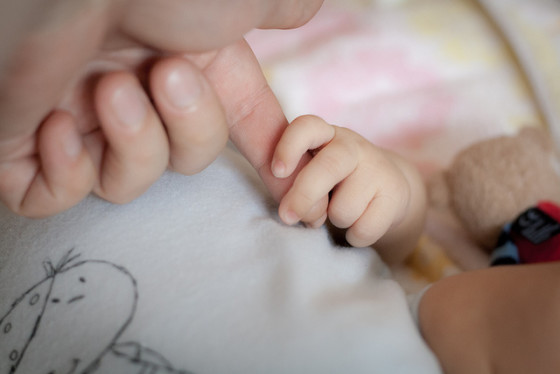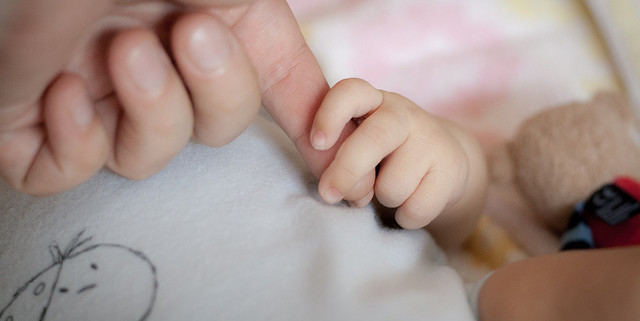Epilepsy And Your Baby – What You Need To Know

In other words, epilepsy most often affects newborn babies. Let’s take a look at what epilepsy is like, what causes it, and how it’s treated.
Contents
What Is Epilepsy?
Epilepsy is a neurological condition that causes episodes of unusual electric activity in the brain. This often causes seizures. Note that not all seizures are epileptic seizures; they may be caused by heart conditions, diabetes, or other health issues. There are two major forms of epileptic seizures: focal and general.
Focal Seizures
Focal seizures start in just one area of the brain. There are two types of focal seizures: simple partial seizures and complex partial seizures.
Simple Partial Seizures
Simple partial seizures may cause mood and sensory changes as well as twitching or tingling of the extremities, but do not cause loss of consciousness.
Complex Partial Seizures
Complex partial seizures may cause you to lose consciousness or may cause you to become nonresponsive, stare into space, or perform repetitive gestures such as hand rubbing.
General Seizures
General seizures affect the entire brain rather than just one part. There are six types of general seizures: petit mal (or absence), tonic, atonic, clonic, myoclonic, and tonic-clonic seizures.
Petit Mal Seizures
Petit mal seizures, also known as “absence” seizures, are characterized by brief periods of “blanking out.” Sufferers may simply stare into space for a few moments and may not respond to stimuli during the seizure. Petit mal seizures are often so mild that they’re not noticed for months; they don’t involve convulsions and are usually brief. Simple absence seizures only cause the sufferer to blank out while complex absence seizures combine blanking out with repetitive motions such as lip smacking or hand rubbing. These seizures are most common in children.
Tonic Seizures
Tonic seizures are characterized by muscle stiffness and tension lasting anywhere from a few seconds to a full minute. The muscle contraction may occur suddenly or gradually; this type of seizure frequently occurs during sleep or just after waking. Tonic seizures are typically accompanied by clonic seizures.
Atonic Seizures
Where tonic seizures cause muscle contractions, atonic seizures cause a sudden relaxation of the muscles. That can cause the sufferer to collapse, which may cause injuries.
Clonic Seizures
Clonic seizures involve muscle spasms and jerking. This type of seizure rarely occurs alone; it is more commonly found in combination with tonic symptoms.
Tonic-Clonic Seizures
Tonic-clonic seizures involve both muscle contractions and spasms. They are also known as grand mal seizures. They may last for several minutes and it may take the sufferer several hours to recover afterward. Grand mal seizures can cause secondary injuries due to falls or impacts caused by the convulsions.
Myoclonic Seizures
Myoclonic seizures cause sudden muscle spasms with no loss of consciousness, although the spasm may be severe enough to cause a fall. The feeling is often compared to receiving a mild electric shock.
Neonatal Seizures
Seizure disorders are most likely to develop within the first week or so after birth and occur in about 3 out of every 1,000 live births. Neonatal seizures are often an indicator of serious damage to or abnormal development of the baby’s brain. Seizures in babies are typically subtle; grand mal seizures are rare in neonates. That can make diagnosis difficult – you should contact your doctor if your child experiences muscle spasms, periods of rapid eye movement, or other episodic symptoms to determine whether your little one may be suffering from seizures whether they’re epileptic or linked to another health issue.
Causes of Neonatal Seizures
Neonatal seizures are most often linked to hypoxic-ischaemic encephalopathy – brain damage due to oxygen deprivation in the womb or during delivery. Other causes of neonatal seizures include brain malformations, fetal stroke, infections during pregnancy, and brain damage due to fetal distress. According to the National Center for Biotechnology Information:
By far the commonest cause is hypoxic–ischaemic encephalopathy. It may be responsible for 80% of all seizures in the first 2 days of life. Brain damage due to prenatal distress and malformations of cortical development is being increasingly recognised. Intracranial haemorrhage and infarction, stroke, and prenatal and neonatal infections are common.
So, the biggest risk factor for neonatal epilepsy is oxygen deprivation. That can happen because of damage to or malformation of the placenta or umbilical cord. It can also happen if the child is stuck in the birth canal for too long during labor and delivery.
Is Your Child Suffering From Epilepsy?
If you believe your child is experiencing seizures, you should contact your doctor immediately. Remember that seizures may involve muscle spasms, rapid eye movements, or repetitive motions rather than the convulsions we typically imagine when we hear the word “seizure.” The thing to look out for is symptoms that pop up in repeated episodes.
Your doctor may order an electroencephalogram (EEG) to look for evidence of unusual electric activity in your little one’s brain. If your child does suffer from epilepsy, the treatment options and prognosis vary significantly depending on the cause and type of the seizure disorder. Some cases will be mild and go away without medication as the child matures. Other cases may be indicative of serious brain damage and may never go away. Babies suffering from epilepsy may benefit from antiepileptic drugs (AEDs). Babies suffering from seizures due to other health issues such as hypoglycemia or serious infections may benefit from treatment of the underlying health issue.
Every child and every case of epilepsy is different, so you’ll need to work closely with your doctor to determine the best course of treatment for your little one.
Legal Issues
In some cases, medical negligence can lead to infection or oxygen deprivation of the fetus, leading the child to develop epilepsy. If that’s the case, your child may be entitled to compensation for required medical bills and ongoing treatment.
Image Credit and License








Leave a Reply
Want to join the discussion?Feel free to contribute!